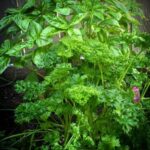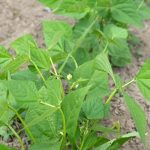We will delve into the benefits of using sweet peet, how to properly apply it, common misconceptions, case studies of successful vegetable gardens using sweet peet, comparisons to other organic fertilizers and soil amendments, expert tips and recommendations, as well as potential drawbacks or considerations when using sweet peet in vegetable gardens.
Derived from a blend of natural ingredients such as composted horse manure and sawdust, sweet peat is known for providing essential nutrients to the soil while improving its texture and structure. Gardeners often use sweet peat to enhance the fertility and overall health of their vegetable gardens.
In this section, we will provide an overview of what sweet peet is and its purpose in gardening. We will also address any misconceptions about its use, providing readers with a comprehensive understanding of this organic soil amendment before delving into its specific benefits and applications in vegetable gardening.
Benefits of Using Sweet Peet in Vegetable Gardens
Sweet Peet is a natural and organic soil conditioner and mulch made from fully composted and aged horse manure, providing numerous benefits when used in vegetable gardens.
Improved Soil Structure and Aeration
One of the key benefits of using Sweet Peet in vegetable gardens is its ability to improve soil structure and aeration. The composted nature of Sweet Peet helps to break up compacted soils, allowing for better water drainage, root penetration, and air circulation within the soil. This creates an optimal growing environment for vegetables, promoting healthy root development and overall plant growth.
Enhanced Nutrient Content
Sweet Peet is rich in essential nutrients such as nitrogen, phosphorus, and potassium, as well as beneficial microorganisms that contribute to the overall health of the soil. When incorporated into vegetable gardens, it provides a slow-release source of nutrients that can support the growth and development of vegetables throughout the growing season. This organic matter also acts as a natural fertilizer, reducing the need for synthetic chemical fertilizers that may have negative impacts on the environment.
Weed Suppression and Moisture Retention
In addition to its nutrient content, using Sweet Peet in vegetable gardens can help suppress weed growth and retain moisture in the soil. The thick layer of Sweet Peet mulch serves as a natural barrier against weed seeds by limiting their access to sunlight, ultimately reducing weed competition with vegetable plants. Furthermore, this mulch layer helps prevent moisture evaporation from the soil surface, maintaining consistent soil moisture levels for optimal plant growth.
Overall, incorporating Sweet Peet into vegetable gardens
How to Properly Apply Sweet Peet in Vegetable Gardens
When it comes to properly applying sweet peet in vegetable gardens, there are a few key steps to keep in mind. First, it’s important to ensure that the soil in your garden is prepared and ready for the sweet peet. This means that any weeds or debris should be removed, and the soil should be well aerated.
Once the soil is prepared, you can then apply the sweet peet to your vegetable garden. It’s recommended to spread a layer of sweet peet about 2-3 inches thick over the surface of the soil. This will help to improve moisture retention, enrich the soil with beneficial nutrients, and enhance overall soil structure.
After applying the sweet peet, it’s crucial to mix it into the top few inches of soil using a rake or gardening fork. This will ensure that the sweet peet is thoroughly incorporated into the existing soil, promoting healthy root development and optimal plant growth.
In addition to initial application, it’s also beneficial to regularly top dress your vegetable garden with sweet peet throughout the growing season. This can help maintain consistent soil moisture levels and provide ongoing nourishment for your plants.
| Benefits of Proper Sweet Peet Application | Information |
|---|---|
| Improved moisture retention | Helps keep the soil consistently moist for vegetable plants |
| Enhanced nutrient content | Adds valuable organic matter and nutrients to support plant growth |
| Healthy root development | Aids in creating an ideal environment for strong and healthy roots |
Common Misconceptions About Using Sweet Peet in Vegetable Gardens
Many gardeners have misconceptions about using sweet peet in their vegetable gardens, which can lead to confusion and hesitation when considering this organic soil amendment. One common misconception is that sweet peet will make the soil too acidic for vegetable plants.
In reality, sweet peet is pH neutral and will not drastically change the acidity of the soil. It actually helps to balance the pH levels and improve the overall quality of the soil, providing a healthy environment for vegetable plants to thrive.
Another misconception is that using sweet peet in vegetable gardens will attract pests or contribute to weed growth. However, sweet peet goes through a composting process that kills weed seeds and harmful pathogens, making it a safe and effective option for enriching the soil in vegetable gardens. Additionally, the natural ingredients in sweet peet promote healthy plant growth without attracting pests, making it a valuable addition to any vegetable garden.
Finally, some gardeners may believe that using sweet peet in their vegetable gardens is complicated or time-consuming. In reality, applying sweet peet is simple and straightforward. Whether used as a top dressing or incorporated into the soil before planting, sweet peet provides long-lasting benefits with minimal effort required on the part of the gardener.
Case Studies of Successful Vegetable Gardens Using Sweet Peet
Sweet peet, a natural and organic soil conditioner, is an excellent addition to vegetable gardens. Many gardeners have reported numerous benefits from using sweet peet, including improved soil structure, increased fertility, and better plant growth. In this section, we will examine some case studies of successful vegetable gardens that have used sweet peet as a key component in their gardening practices.
Increased Soil Fertility and Nutrient Retention
One of the key benefits reported by gardeners using sweet peet is the significant increase in soil fertility and nutrient retention. In a study conducted by a local agricultural extension service, it was found that vegetable gardens treated with sweet peet showed higher levels of essential nutrients such as nitrogen, phosphorus, and potassium. This resulted in healthier plants with improved yields compared to gardens without the use of sweet peet.
Improved Soil Structure and Water Retention
In another case study conducted on a community vegetable garden, it was observed that the use of sweet peet led to improved soil structure and water retention. The gardeners noted that the soil became more friable and easier to work with after adding sweet peet. Additionally, they reported that the garden required less frequent watering due to the enhanced water retention properties of the soil amended with sweet peet.
Reduction in Pests and Diseases
Furthermore, several individual gardeners reported a reduction in pest infestations and plant diseases after incorporating sweet peet into their vegetable gardens. This observation is supported by research indicating that the organic compounds present in sweet peet can help suppress certain pathogens and pests that commonly affect vegetables.
These case studies provide compelling evidence that sweet peet is indeed beneficial for vegetable gardens. The experiences of these successful gardeners demonstrate how sweet peet can improve soil fertility, structure, water retention, and even contribute to pest and disease management in vegetable gardens.
Comparing Sweet Peet to Other Organic Fertilizers and Soil Amendments for Vegetable Gardens
Sweet peet is a unique organic fertilizer and soil amendment that has gained popularity among gardeners for its ability to improve the health and productivity of vegetable gardens. While there are many other organic options available, sweet peet offers distinct advantages that make it an attractive choice for gardeners looking to enhance their vegetable plots.
One of the key benefits of using sweet peet in vegetable gardens is its ability to improve soil structure and fertility. This natural organic material is rich in essential nutrients and beneficial microorganisms, which helps to foster healthy root development and encourage robust plant growth. Additionally, its high carbon content helps to retain moisture in the soil, reducing the need for frequent watering-a crucial factor for maintaining healthy vegetable plants.
When compared to other organic fertilizers and soil amendments commonly used in vegetable gardens, sweet peet stands out due to its versatility and long-term benefits. Unlike some other fertilizers that may provide a quick nutrient boost but lack long-lasting effects, sweet peet gradually releases essential nutrients over time, promoting sustained plant growth and overall vigor.
Some gardeners have also reported that using sweet peet has led to increased resistance to pests and diseases in their vegetable gardens-a potential advantage that is worth considering when comparing different organic options. Overall, sweet peet’s unique composition sets it apart from other organic fertilizers and soil amendments, making it a valuable addition to any vegetable garden.
- Sweet Peet’s ability to improve soil structure
- Its rich nutrient content
- Enhanced resistance to pests and diseases
Expert Tips and Recommendations for Using Sweet Peet in Vegetable Gardens
Using sweet peet in vegetable gardens can greatly benefit your plants and soil health. Here are some expert tips and recommendations for using sweet peet in your vegetable garden:
- Start with the right amount: When applying sweet peet to your vegetable garden, it’s important to use the right amount for your specific needs. A general rule of thumb is to apply a 2-3 inch layer of sweet peet on top of the soil and gently mix it in.
- Consider the pH levels: Before applying sweet peet, it’s best to test your soil’s pH level. Sweet peet has a slightly acidic pH, so if your soil is already acidic, you may want to consider adding lime to balance out the acidity.
- Regular maintenance: While sweet peet is beneficial for your vegetable garden, it’s important to regularly monitor and maintain the soil. Consider adding more sweet peet every year or as needed to keep improving the soil structure and fertility.
Remember that while sweet peet can provide numerous advantages for your vegetables, it’s not a one-size-fits-all solution. You should always consider your specific garden’s needs and do regular testing and monitoring to ensure that using sweet peet will truly benefit your crops.
Potential Drawbacks or Considerations When Using Sweet Peet in Vegetable Gardens
When using sweet peet in vegetable gardens, there are a few potential drawbacks and considerations to keep in mind. One important factor to consider is the pH level of your soil. Sweet peet has a pH level that can range from 6.2 to 6.8, which is slightly acidic.
While this may be suitable for many vegetables, it’s important to test your soil’s pH and ensure that it won’t become too acidic with the addition of sweet peet. Adding too much sweet peet could lead to an imbalance in the pH levels, affecting the growth and health of your vegetables.
Another consideration when using sweet peet in vegetable gardens is its water retention properties. While sweet peet is known for its ability to improve soil structure and retain moisture, this can also become a drawback in certain circumstances. In areas with excessive rainfall or poor drainage, an overabundance of sweet peat could lead to waterlogged soil and potentially harm the root systems of your vegetables.
Furthermore, some gardeners have reported that using sweet peet in their vegetable gardens led to an increase in weeds. It’s important to be mindful of this potential consequence and take necessary measures such as mulching and regular weeding to prevent weed growth from overshadowing your precious vegetable plants.
Overall, while sweet peet offers numerous benefits for vegetable gardens, it’s essential to carefully consider these potential drawbacks and take appropriate measures to mitigate any negative effects on your garden.
Conclusion
In conclusion, sweet peet is a fantastic choice for enhancing the health and productivity of vegetable gardens. Its unique composition of organic ingredients, including composted manure and natural minerals, provides numerous benefits for plants and soil. From improving soil structure to promoting healthy root growth, sweet peet is a valuable addition to any vegetable garden.
When properly applied, sweet peet can help retain moisture in the soil, reduce the need for frequent watering, and suppress weed growth. This not only saves time and effort for the gardener but also contributes to a more sustainable and environmentally friendly approach to gardening. Additionally, the nutrients found in sweet peet can support robust growth and high yields in vegetable plants.
Although there may be some misconceptions about using sweet peet in vegetable gardens, its effectiveness has been proven through various case studies. Many successful vegetable gardens have utilized sweet peet as part of their soil amendment strategy with excellent results. By following expert tips and recommendations for application, gardeners can maximize the benefits of using sweet peet in their vegetable gardens.
Frequently Asked Questions
Can You Plant Directly in Sweet Peet?
Yes, you can plant directly in Sweet Peet. It is a natural organic soil conditioner that can be used as mulch or mixed into the soil for planting. Its high nutrient content makes it suitable for plants.
What Is Sweet Peet Good For?
Sweet Peet is good for improving soil structure, retaining moisture, and providing a natural source of nutrients to plants. It also helps suppress weed growth and enriches the soil with beneficial microorganisms.
Should I Use Peat Moss in My Vegetable Garden?
Peat moss can be used in a vegetable garden to improve soil structure and water retention. However, it should be used sparingly as it has a high acidic pH level which may not be ideal for all vegetables. Mixing it with other organic matter is recommended for best results.

If you’re looking to get into vegetable gardening, or are just looking for some tips on how to make your current garden better, then you’ve come to the right place! My name is Ethel and I have been gardening for years. In this blog, I’m going to share with you some of my best tips on how to create a successful vegetable garden.





